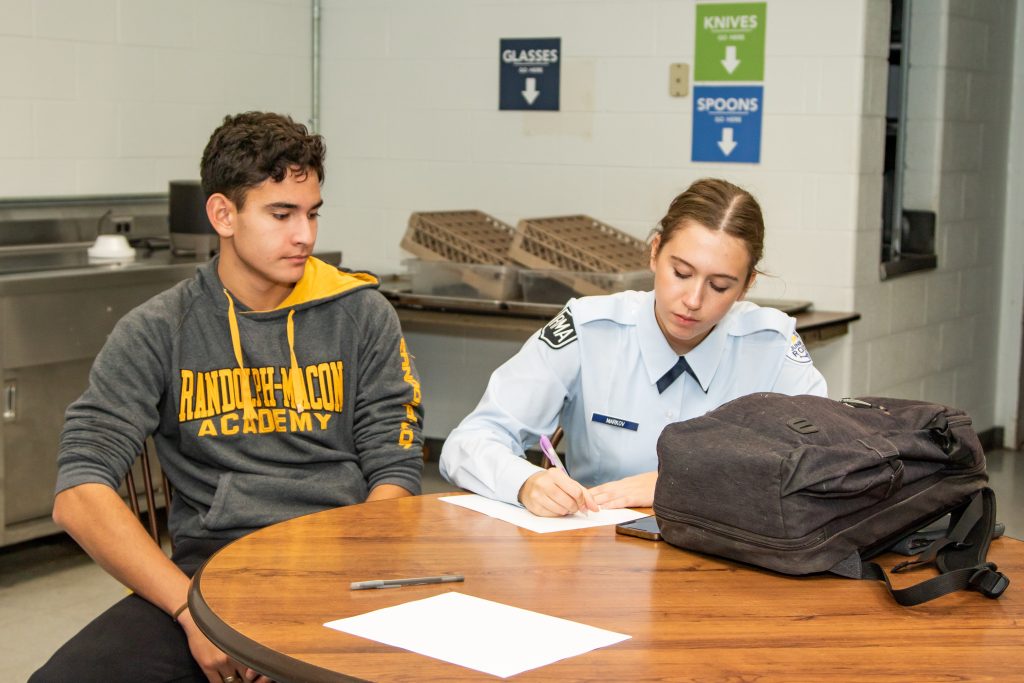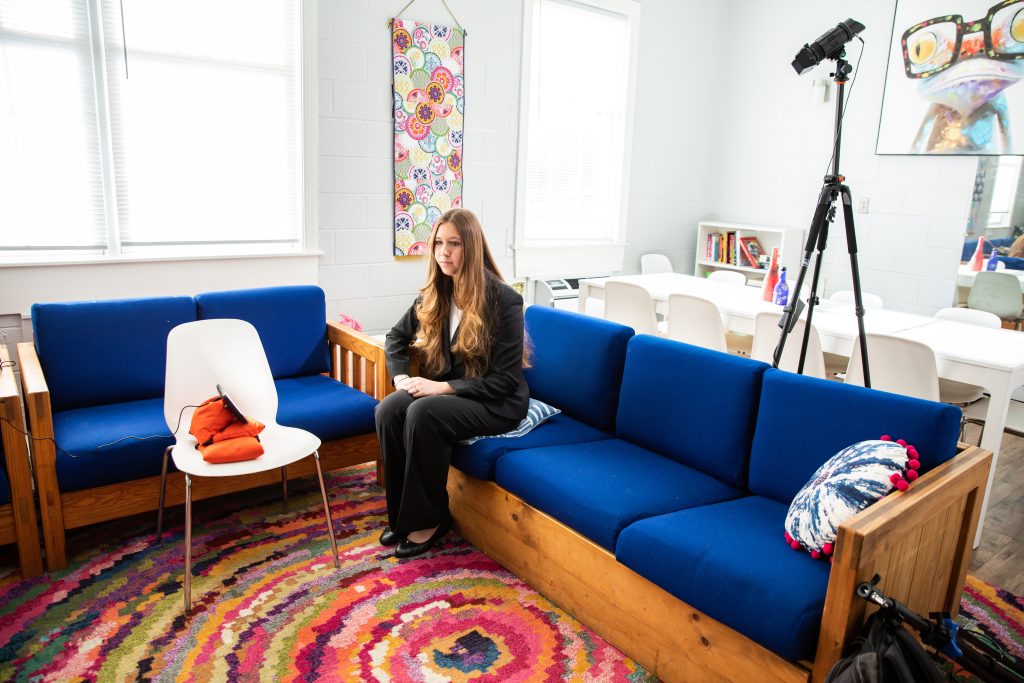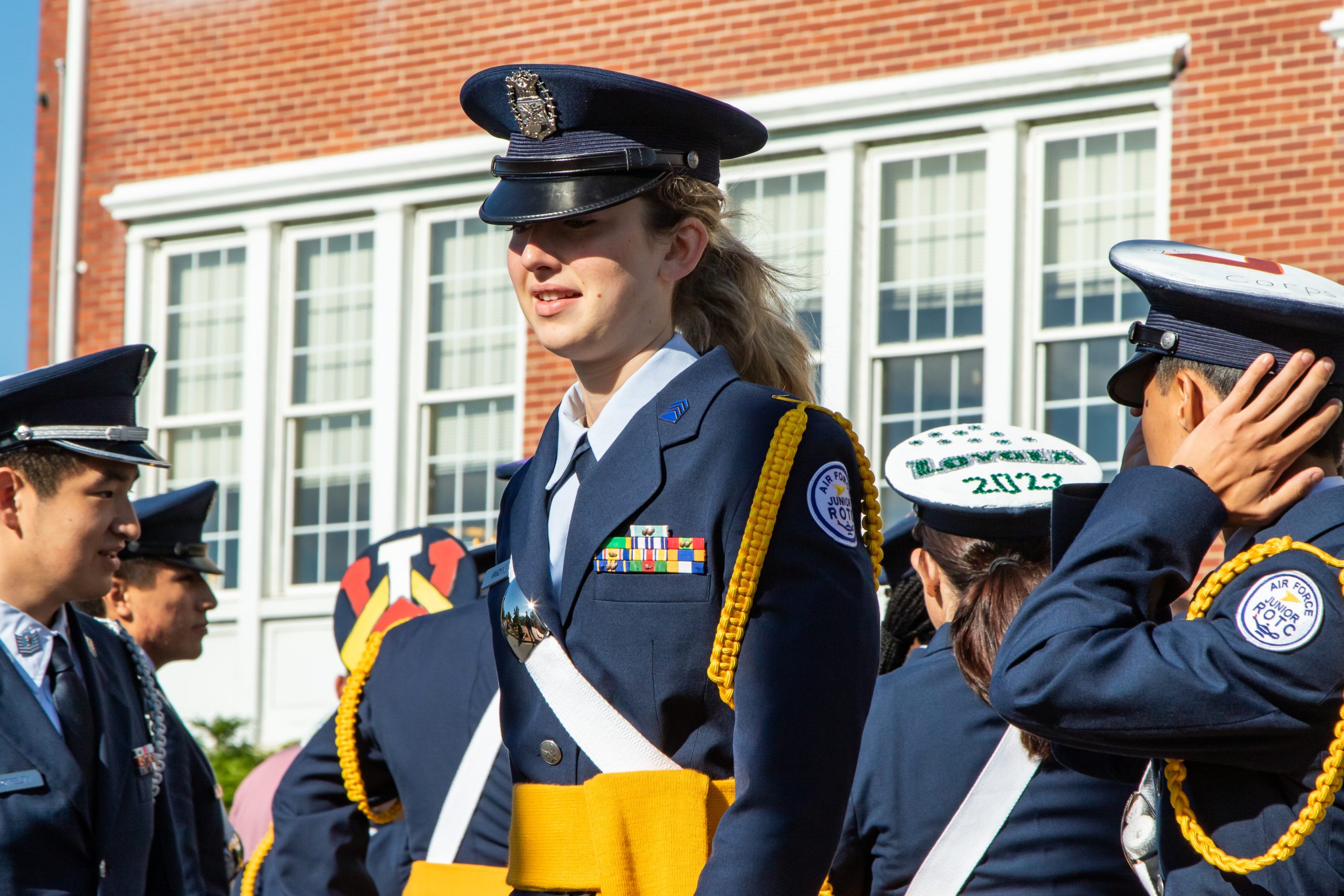If you’re considering college applications and college interviews, then you’re approaching a very exciting time in your life when you get to make important decisions about your future. Students at Randolph-Macon Academy can approach this time with enthusiasm and confidence due to their exceptional preparation for college and their ability to present themselves as leaders.
College interviews can be intimidating to some, but the professional relationships developed over the course of your time at R-MA will help you enter these meetings with the skills needed to impress the admissions officers. Whether you already know which school you want to attend or you want to have a few different options available, R-MA will help you acquire the skills needed and prepare your resume to stand out amongst the applicants. Continue reading to discover our best tips for college interviews.
1. Get Comfortable with Mock Interviews During Prep School
Mock interviews, or practice interviews, are a great way to prepare for the real thing. With mock interviews, it is important to try to stimulate the same environment and feelings that will be present during your college interviews. You can have an R-MA instructor or staff member help you run through a mock interview, getting them to ask you challenging questions. At first, these sample interviews may seem tough and unnatural, which is exactly why we encourage students to practice. Over time, your responses will feel more natural and composed as you decide how you want to present yourself.

2. Practice Commonly Used Interview Questions
Another great tip is to practice the questions you expect to be asked in the college admission interview. Try to think of specific questions that the interviewer may ask about your resume, your experiences, your passions, and what value you can add to the school. Our prep school students often prepare answers to questions such as ‘Why are you interested in our college?’ and ‘What is a challenge you have had to overcome in your life?’ Start with coming up with the answers to basic questions, such as your academic background and personal qualities, and then begin to think of some other complete questions that the interviewer may ask about your skills, passions, future, and more.
3. Do Your Research on Each Specific College
It is important to research each school to respond accurately to the interview questions. During college interviews, students are often asked about how their private high school experiences will enhance their ability to perform well at college. In this case, it’s important to understand the university and what its academic programs, clubs, sports, extracurriculars, and campus life are like. Without knowing what the school offers, you won’t be able to convince the interviewer that you are a good fit.
4. Try to be Genuine in Your Responses
While practice is important, and you surely want to rehearse your responses to common interview questions, it should remain a priority to come across as genuine. Interviews go more smoothly when the responses come from a place of genuine interest and authenticity and don’t feel robotic or unnatural. Keep in mind what you have practiced as you enter a college interview, leave room for the flow of the conversation and be sure to show your personality to the interviewer. Many students have strong academic resumes going into college applications, so try to be your unique self and show the interviewer why you deserve a spot at their school.

5. Maintain Professionalism Throughout the Interview
Finally, along with practicing your interview answers and allowing your personality to shine through your responses, you’ll also want to prioritize professionalism. This can range from arriving early to your scheduled interview, greeting your interviewer formally upon arrival, and maintaining a level of attentiveness throughout the interview. Try to settle your nerves so your answers come across as confident and well-spoken. While it may feel like a casual conversation for the interviewer to get to know you, remember that the interview acts as an evaluation, and you do need to show a level of competence throughout. Dressing semi-formally or formally, maintaining attentive body language and eye contact during the interview, and speaking from a place of respect will help you exude professionalism. After your time at R-MA, this will come naturally to you, giving you a competitive edge in your college interviews.
Interested in learning more about our coed private school?
Contact Randolph-Macon Academy for more information!

